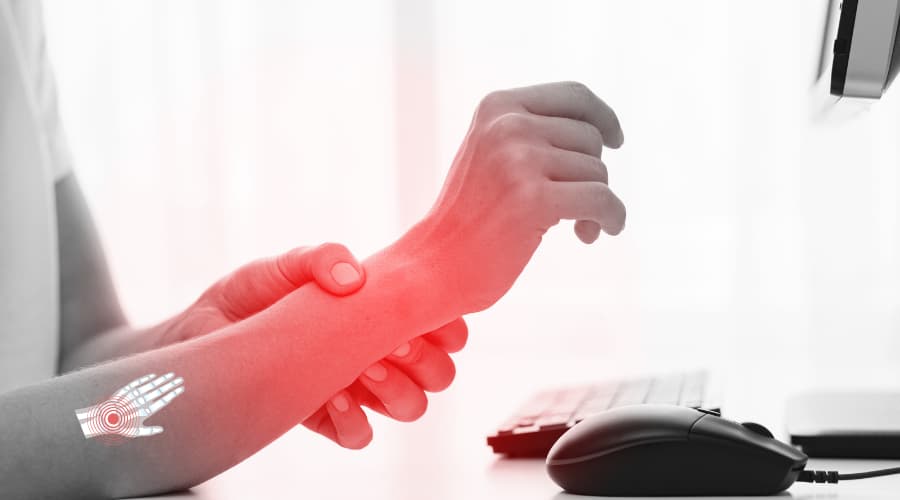Despite erectile dysfunction being a common issue, it is often shrouded in silence and discomfort. In the United Kingdom, it affects about 1 in 5 men aged 40 and over, translating to an estimated 4.3 million men across the nation.
The importance of openly discussing ED cannot be overstated. Silence and stigma not only exacerbate the psychological impact on those affected but also hinder access to effective treatment and support. In a society where sexual health is still a taboo topic for many, encouraging open and honest conversations about ED is crucial. This discussion is not just about addressing a medical condition; it’s about breaking down barriers, fostering understanding, and promoting a more proactive approach to men’s health.
By shedding light on ED, its causes, and its treatments, we can better support those affected and move towards a more informed and empathetic society.
Understanding Erectile Dysfunction
In the UK, erectile dysfunction (ED) is more prevalent than often acknowledged. Statistics reveal that about 1 in 5 men aged 40 and over are affected by ED, equating to approximately 4.3 million men across the country. This prevalence increases with age, making ED a common yet under-discussed health issue among the male population.
The scope of ED in the UK underscores its significance as a public health concern. With the ageing population, these numbers are expected to rise, bringing ED into the spotlight as a significant health issue that needs more open dialogue and awareness.
Despite its prevalence, ED is shrouded in misconceptions and stigma. Common myths in the UK include beliefs that ED is just a part of ageing that men must accept or that it is solely a psychological problem. These misconceptions often prevent men from seeking medical advice, leading to a lack of proper diagnosis and treatment.
In the UK, like many parts of the world, there’s a societal stigma associated with ED. Many men feel embarrassed to discuss ED, even with their healthcare providers, due to fears of being judged or not taken seriously. This stigma is often compounded by the portrayal of masculinity in media and culture, where sexual prowess is inaccurately equated with manliness and virility.
This combination of misconceptions and stigma not only hinders individuals from seeking treatment but also affects their mental health, relationships, and overall quality of life. The lack of open discussion about ED perpetuates misinformation, making it challenging for men to navigate their condition effectively.
The Impact of Not Discussing ED
When erectile dysfunction (ED) remains a silent struggle, the ramifications extend far beyond the physical symptoms. In the UK, where ED is prevalent yet often undiscussed, the impact of this silence is profound, affecting mental health and relationships.
- Anxiety and Depression:
Men with untreated ED often experience heightened levels of anxiety and depression. The inability to perform sexually can lead to persistent worries and self-doubt, exacerbating mental health issues.
The British Association of Urological Surgeons reports that psychological factors, often stemming from untreated ED, contribute significantly to the condition’s severity and persistence.
- Impact on Self-esteem and Identity:
ED can also impact a man’s sense of self and identity, particularly in cultures where sexual prowess is closely linked to notions of masculinity, as is often the case in the UK.
This can lead to feelings of inadequacy and a diminished sense of self-worth.
- Communication Barriers:
ED can create a barrier to open communication between partners. A study by the Journal of Sexual Medicine found that in the UK, men with ED who avoided discussing their condition had a higher rate of relationship dissatisfaction.
- Sexual Dissatisfaction and Relationship Breakdowns:
The absence of a fulfilling sexual relationship, often exacerbated by undiscussed ED, can lead to relationship strain or breakdown. According to Relate, a leading relationship charity in the UK, sexual problems, including ED, are among the top reasons couples seek counselling.
Relationship breakdown statistics in the UK suggest a notable link between unresolved sexual health issues and separation or divorce.
- Social Withdrawal:
Men suffering from ED may also withdraw from social interactions and activities they once enjoyed, further isolating themselves and potentially worsening their mental health.
- Workplace Productivity:
The stress and psychological burden of ED can spill over into work life, affecting concentration, productivity, and overall job satisfaction.
Starting the Conversation
Initiating a conversation about erectile dysfunction (ED) can be daunting. Understanding and preparing for this discussion is crucial in overcoming personal barriers and creating a conducive, open, supportive dialogue environment.
- Overcoming Personal Barriers:
Acknowledge that ED is a common health issue and not a reflection of personal failure. Understanding the condition’s medical nature can help reduce self-blame and embarrassment.
Familiarise yourself with the facts about ED. This knowledge can boost confidence and help dispel any myths or misconceptions causing reluctance to speak up.
Confront feelings of embarrassment, shame, or fear. Writing down your thoughts and concerns or speaking with a counsellor or therapist before discussing ED with a partner or doctor can be helpful.
- Identifying the Right Time and Setting:
Select a time when you and your partner (or the person you’re speaking with) are relaxed and not preoccupied. Avoid times of stress or conflict.
Ensure the conversation takes place in a private and non-threatening environment. A quiet space where you won’t be interrupted or rushed is ideal.
Approach the conversation with honesty and directness but also with sensitivity. It’s essential to communicate in a way that doesn’t place blame or create unnecessary pressure.
Be open about your feelings and fears regarding ED. This honesty can foster understanding and empathy from your partner or healthcare provider.
Be ready for a range of responses. Remember that the initial reaction might be surprise or discomfort, but this doesn’t preclude a supportive and constructive dialogue moving forward.
Talking about ED with Your Partner
Having a conversation about erectile dysfunction (ED) with your partner is not just about addressing a medical issue; it’s about maintaining and nurturing trust and understanding in a relationship. Here are some practical tips to guide this sensitive dialogue.
- The Foundation of Honesty and Empathy:
Honesty is key. Share your experiences, concerns, and fears openly. Avoiding or disguising the issue can lead to misunderstandings and further strain the relationship.
Acknowledge that ED can also impact your partner. They may have their concerns or fears regarding the relationship or their desirability. Recognising this shared impact fosters a supportive environment.
- Strategies for Effective Communication:
Initiate the conversation when you and your partner are relaxed and free from immediate stressors or distractions.
Frame your thoughts and feelings using “I” statements, like “I feel” or “I have noticed.” This approach helps convey your perspective without unintentionally placing blame or causing defensiveness.
Be an active listener. Allow your partner to express their thoughts and feelings and acknowledge their input. This mutual understanding is vital for navigating ED together.
Talk about how ED affects your relationship and individual well-being. Discuss potential solutions, including seeking medical advice, therapy, or lifestyle changes.
Reaffirm your affection and commitment to each other. ED does not diminish the emotional and romantic aspects of your relationship.
Be realistic about the journey ahead. Managing ED can be a process that involves trial and error and requires patience and understanding from both partners.
- Considering Professional Help:
If the conversation about ED is challenging, consider couples therapy. A trained therapist can provide guidance and create a safe space for open dialogue.
Discussing ED with Healthcare Professionals
Engaging in a conversation about erectile dysfunction (ED) with a healthcare professional is a crucial step towards diagnosis and treatment. Preparation and understanding of the healthcare process in the UK can make this experience more comfortable and productive.
- Preparing for the Medical Consultation:
Keep a record of your ED symptoms, noting their frequency, severity, and any related circumstances or triggers. This can help provide a clear picture to your healthcare provider.
Prepare a detailed medical history list, including any past or current conditions, surgeries, and medications. This information is vital as it could influence the diagnosis and treatment plan for ED.
Write down any questions or concerns you have about ED. This might include queries about potential causes, treatment options, lifestyle changes, or the impact of ED on your overall health.
Be prepared to discuss any mental health issues, as these can be both a cause and a consequence of ED. Openness about psychological aspects is essential for holistic treatment.
- Understanding Confidentiality and Privacy:
Patient confidentiality is a fundamental part of the UK healthcare system. Any discussion about your ED, including its diagnosis and treatment, will remain confidential between you and your healthcare provider.
Suppose you must share your medical information with other healthcare professionals for treatment. In that case, your consent will be sought first unless there are overriding legal or safety reasons not to do so.
Clinics and hospitals in the UK are designed to ensure patient privacy during consultations. Feel free to inform the staff if you require additional privacy measures or have specific concerns.
- Building a Comfortable Dialogue:
If you feel uncomfortable speaking to your current doctor about ED, you can request a consultation with another professional.
Consider having your partner accompany you during the consultation for support if it makes you more comfortable.
Addressing ED in Older Men
Erectile dysfunction (ED) is a common concern among older men, with its prevalence increasing with age. Addressing ED in this demographic involves understanding the unique challenges and sensitivities that come with ageing. In the UK, specific data on ED prevalence in older age groups sheds light on the significance of this issue.
- ED Prevalence in Older Age Groups:
Research indicates that ED affects about 40% of men at the age of 40, and this figure rises to about 70% for men aged 70 and over. This highlights the increasing relevance of ED as a health concern in older populations.
These statistics emphasise the need for targeted approaches in discussing and treating ED in older men, recognising that it is a standard part of ageing for many.
- Special Considerations in Older Men:
With age, the likelihood of underlying health conditions such as cardiovascular disease, diabetes, and hypertension increases, all of which can contribute to ED. Therefore, ED discussions should include evaluations of these potential underlying conditions.
Older men are often on multiple medications, and some of these drugs can contribute to or exacerbate ED. A careful review of all medicines is essential in any ED consultation.
It’s important to normalise the age-related changes in sexual function. This can include changes in libido, sexual response, and the need for more time to achieve an erection.
Emotional and psychological factors, including retirement, the loss of a partner, or feelings of reduced usefulness, can also impact sexual function in older men. Addressing these aspects is crucial for a comprehensive approach to ED management.
Leveraging Support Systems
In the journey to manage and cope with erectile dysfunction (ED), leveraging support systems can be immensely beneficial. In the UK, various avenues of support, including groups, counselling services, and online resources, can provide valuable assistance and guidance.
- Support Groups and Counselling Services:
ED support groups in the UK offer a platform for sharing experiences and advice. These groups, often led by healthcare professionals or peers who have experienced ED, provide a space for open discussion, empathy, and understanding.
They can be accommodating in normalising the experience of ED and providing practical tips on dealing with its challenges.
Professional counselling, including sex therapy and couple’s counselling, can be instrumental for individuals and couples dealing with ED.
The British Association for Counselling and Psychotherapy and other professional bodies in the UK offer directories to find qualified therapists specialising in sexual health and ED.
- Online Resources and Communities:
Online communities and forums provide a platform for connecting with others facing similar challenges with ED. They offer anonymity, which can be comforting for those not ready to discuss their condition openly. However, it’s important to approach online advice cautiously and verify the information’s credibility.
The NHS website and other reputable medical sites offer accurate and comprehensive information about ED, its causes, treatment options, and management. These resources can be a good starting point for individuals seeking to understand their condition better.
The rise of digital health tools, including apps and telehealth services, has made seeking advice and treatment for ED in the UK easier. These tools offer privacy, convenience, and access to healthcare professionals.
- Combining Support Systems:
Combining the benefits of support groups, professional counselling, and online resources can provide a well-rounded approach to managing ED. Each avenue offers unique benefits, and together, they can address the physical, psychological, and emotional aspects of ED.
Related Articles
- Psychological Aspects of Erectile Dysfunction
- Erectile Dysfunction and Underlying Health Conditions
- Lifestyle Factors Impacting Erectile Dysfunction
- Causes of Erectile Dysfunction in the UK
- Prevalence of Erectile Dysfunction in the UK




